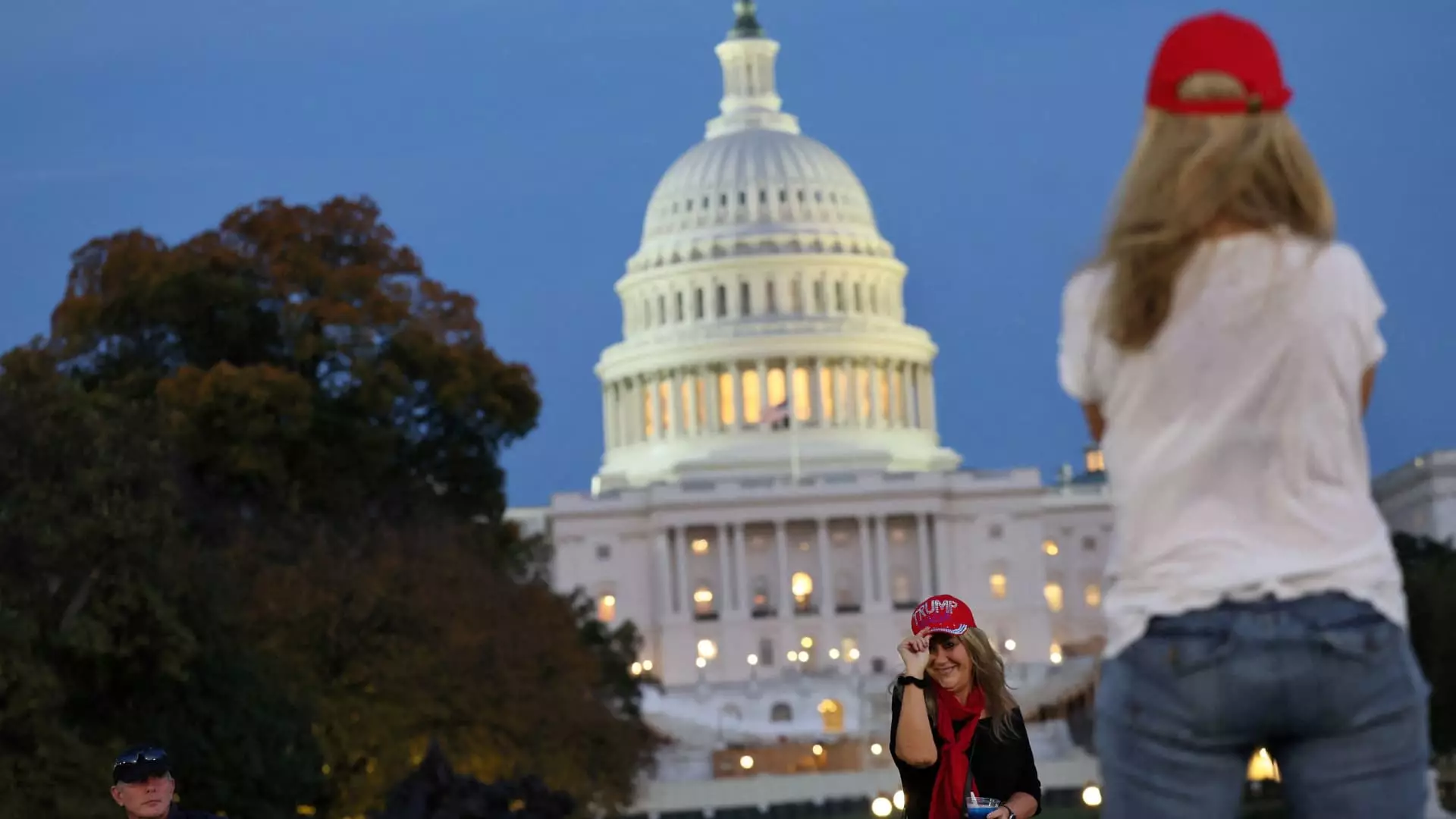In the wake of Donald Trump’s election as president, individual investors find themselves at a crossroads regarding their financial strategies. The initial aftermath of his win has been marked by a pronounced market rally, with indices such as the Dow Jones Industrial Average reaching impressive heights. However, financial experts advise caution, urging investors to maintain their established financial plans and strategies rather than make rash decisions based purely on electoral outcomes.
Trump’s victory has been met with a surge of enthusiasm in the markets, with many interpreting this uptick as a sign of potential economic growth and more favorable business policies. Analysts suggest that this reaction may be less an endorsement of Trump’s policies and more a relief at the conclusion of a contentious electoral process that has left many investors anxious. There is a collective hope that a clear leadership will reduce uncertainty, a sentiment echoed by financial planners who emphasize the importance of sticking to individual investment strategies that align with personal financial goals, risk tolerance, and time horizons.
The settlement in political ambiguity plays a pivotal role in market dynamics; however, this does not guarantee sustained market performance. Financial professionals stress that investors should temper their enthusiasm with prudence. It’s essential to distinguish between short-term market fluctuations and long-term investment strategies. Marguerita Cheng, a financial expert, highlights that personal circumstances should dictate asset allocations rather than the current political climate, reinforcing a strategy-centric approach to investing.
The Potential of Policy Changes
Looking ahead, some advisors foresee that Trump’s administration could usher in market-friendly policies, particularly in sectors such as energy and finance, owing to a possible reduction in regulations. The prospect of tax reforms is also high on the agenda, with prior tax cuts from Trump’s first term still fresh in the minds of investors. These cuts—expected to boost corporate performance—could play a significant role in shaping market trajectories in the coming years. Yet, experts caution that these anticipated changes are not guaranteed; much remains in the realm of speculation until actual legislation is proposed and enacted.
Moreover, potential benefits such as the elimination of taxes on Social Security benefits are still in jeopardy. Experts like David Haas remind us that any tangible outcomes depend on legislative action, which can be notably slow. Without concrete proposals, the extent of these benefits remains uncertain. Investors are thus advised to stay informed but wary, as policy changes could take time to materialize or may be subject to alterations.
Another critical component of the conversation revolves around inflation and its possible trajectory under Trump’s administration. While the Federal Reserve has successfully managed to control inflation rates, any policy geared towards consumer-friendly gains, such as significant tax reductions, could inadvertently sway inflation upward. As the economy adjusts to a pro-business climate, resultant increases in disposable income could spur consumer spending, further complicating the inflation landscape.
This evolving inflationary environment might prompt the Federal Reserve to reconsider its interest rate strategy. Recent actions by the Fed to lower rates hint at a broader economic strategy, yet potential shifts prompted by political decisions could steer future rates in different directions. Investors must remain vigilant as these changes may influence not just their investments, but the broader economic environment as well.
Steadfast Strategies in Uncertain Times
As political uncertainties ripple across the financial landscape, one fundamental principle emerges: successful investing is based on steadfast strategies rather than reactionary moves. Financial professionals strongly advocate maintaining a focus on long-term goals while allowing for minor adjustments in response to evolving market conditions. Such an approach mitigates the emotional turmoil many investors experience during turbulent times.
In essence, the future financial landscape will be shaped as much by individual investor decisions as it will be by the actions of an administration grappling with multiple challenges. As we navigate this transitional period, the wisdom of a balanced and informed investment strategy becomes more vital than ever. With a comprehensive understanding of both personal financial goals and the broader economic context, investors can navigate the uncertain waters ahead with resilience and clarity.
The overarching takeaway for individual investors? Be prepared but cautious. The political landscape may shift, but a well-structured financial plan will withstand the volatility, resulting in sustained financial health over the long term.

